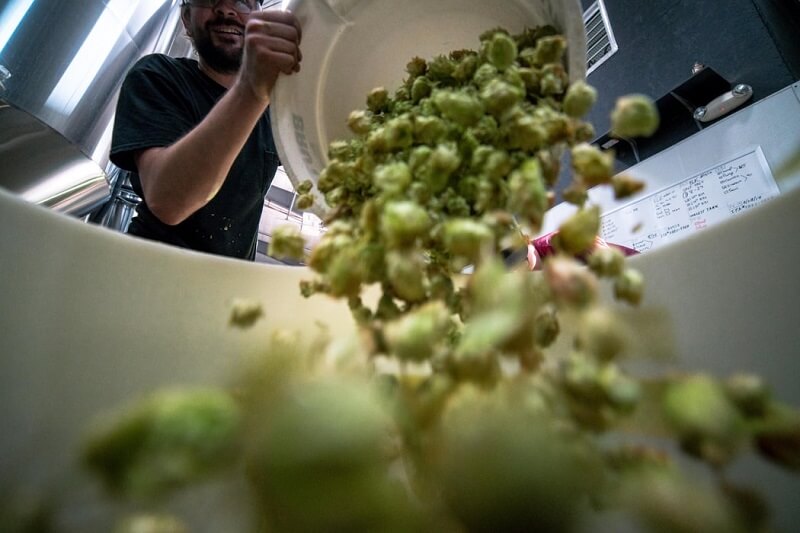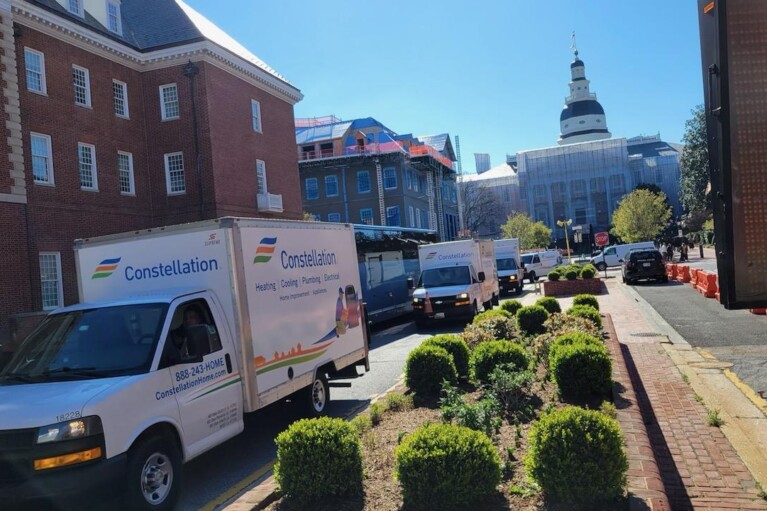
If Maryland is to achieve its climate goals, we need to source more renewable energy, reduce our energy usage and improve our waste management. One of the easiest and most effective strategies to reduce our waste stream is by removing organics from the system. In other words: support more composting.
More and more residents are turning to recycling their fruits, vegetables and other food because these valuable resources should not be disposed of in landfills and in incinerators, but instead should be turned into soil building compost or diverted to food pantries for food insecure residents.
Composting turns this discarded organic material into a nutrient-rich product that helps sequester carbon while improving soil health and resilience. Composting is an effective tool for reducing CO2 and methane emissions, while creating a product that improves our resilience to our changing climate. When added to soil, compost can also reduce urban stormwater pollutants by 60% to 95%.
More than 25% of the food supply at the retail and consumer level goes uneaten and wasted. Together, Montgomery County and the City of Baltimore produce more than 247,000 tons of food waste per year. Sending that waste to incinerators that emit toxic pollutants and to landfills that emit methane, a powerful greenhouse gas, has a significant impact on our citizens’ health and on our local budgets.
As members of the General Assembly continue moving our state toward a greener future, we are hopeful that the Organics Recycling and Waste Diversion Bill (HB264/SB483), sponsored by Del. Lorig Charkoudian (D-Montgomery) and Sen. Shelly Hettleman (D-Baltimore County), will be passed into law this year.
The legislation would require large producers of food waste to compost or otherwise divert food waste from landfills and incinerators if they are within 30 miles of a compost or facility able to accept it. It would also help support composting programs and initiatives already underway or planned in each of our jurisdictions.
In Montgomery County, it would complement a recently approved zoning amendment that allows farms to increase their on-site composting capabilities by accepting more scraps from households and restaurants. Montgomery County primarily uses a composting facility in Prince George’s County for its fledgling efforts, but state action would incentivize expansion of composting capabilities within Montgomery County.
Similarly, the bill supports Baltimore City’s key strategies in achieving its goal to reduce commercial food waste by 50% by 2040. The city established a Waste to Wealth Initiative that fosters businesses that capture waste, including food waste, before it is thrown away. Baltimore disposes 100,000 tons of food waste annually, almost one fourth of all the waste sent to its landfill and the Wheelabrator incinerator.
In Frederick, the Lunch Out of Landfills program mobilizes K-12 students to sort, compost and recycle school food waste at a growing number of public schools. Local private sector options for residential composting are expanding throughout the county, and the City of Frederick is actively exploring a pilot program that could expand both residential and commercial composting in the city.
Expanding composting will also expand a greener economy across the state by supporting a burgeoning environmental economy that helps control soil erosion, stormwater management, green infrastructure and other purposes.
The United Nations Intergovernmental Panel on Climate Change, a panel of more than 100 scientists around the globe, issued a report in 2019 that took an unprecedented look at the impact of climate change on lands and the effects of land use on the climate. As reported in Climate Action News, the authors said that the entire food production system accounted for as much as 37% of the planet’s total greenhouse gas emissions and that eliminating food waste, among other measures, should be global priorities, crucial to the immediate, all-out effort needed to forestall a climate catastrophe.
As local officials charged by our citizens with addressing climate change in our own communities, passing the organics recycling bill this session is an important step toward fulfilling our commitment to them and the planet.
— EVAN GLASS, KAI HAGEN, KRISTERFER BURNETT AND BEN MACSHANE
Glass is an at-large member of the Montgomery County Council. Hagen is an at-large member of the Frederick County Council. Burnett represents District 8 on the Baltimore City Council. MacShane is an alderman on the Frederick City Council.





 Creative Commons Attribution
Creative Commons Attribution